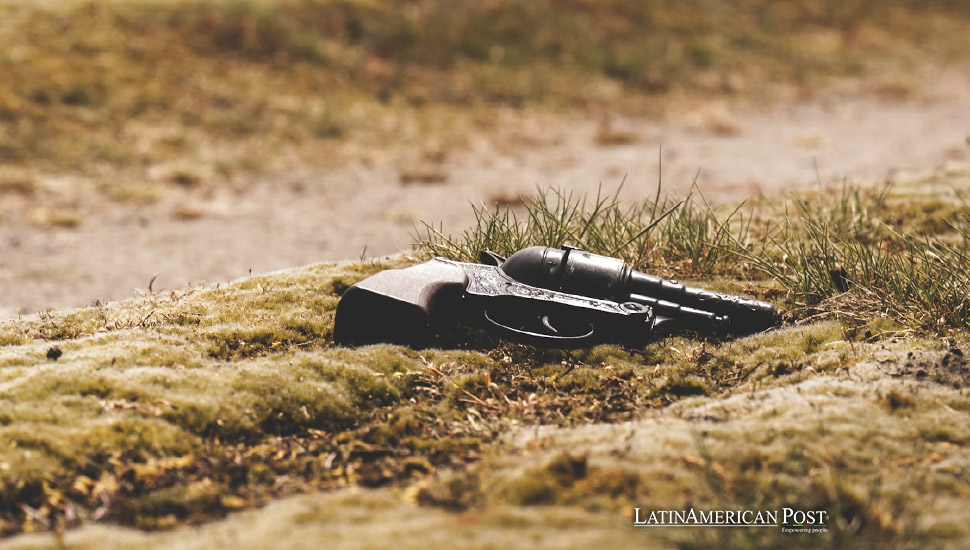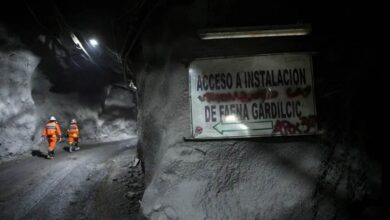Rising Crime in Paradise: The Dark Side of Turks and Caicos

Once known for its serene beauty and crystal-clear waters, the Turks and Caicos Islands now face a growing wave of violence. Authorities reveal that a single firearm has been linked to 32 murders, exposing the island’s struggle against organized crime.
A Paradise in Peril
The Turks and Caicos Islands, a stunning archipelago of 40 low-lying coral islands in the Atlantic Ocean, are renowned for their white sandy beaches and turquoise waters. These islands, which lie southeast of the Bahamas, have a rich history that dates back to the early 16th century when they were first sighted by Spanish explorer Juan Ponce de León in 1512. Later, they became a haven for pirates in the Caribbean, with legends of buried treasure still captivating locals and tourists alike.
By the 17th century, the British claimed the islands, and for much of their history, Turks and Caicos remained a quiet, colonial backwater known for salt production. It wasn’t until the 20th century that tourism started to flourish, transforming the economy and making the islands one of the premier vacation destinations in the world. Today, the islands are known for their pristine beaches, luxury resorts, and coral reefs teeming with marine life. Turks and Caicos have become synonymous with paradise.
However, a growing threat lies beneath this tranquil tropical paradise. Once known for their peaceful existence and limited crime, the islands have recently found themselves grappling with a surge of violence that seems at odds with their idyllic reputation. The islands’ history, marked by their status as a British Overseas Territory and their reliance on tourism, has made them vulnerable to external influences, particularly illegal immigration, drug trafficking, and organized crime.
The Surge in Violence and Gangs
Recent years have seen a troubling increase in crime, particularly violent crime, on the islands. The Commissioner of Police for Turks and Caicos, Edvin Martin, recently revealed that a single firearm had been used in 32 murders over the past few years, highlighting the scale of the issue. For a territory with a population of just over 38,000 people, this statistic paints a grim picture. What was once a haven for tourists is now being infiltrated by organized criminal activity, driven in part by external forces such as illegal immigration and drug trafficking.
Commissioner Martin noted that much of the violence can be traced back to a small group of individuals involved in gang-related activities. While Turks and Caicos is not a large country, the community’s small size makes it all the more vulnerable to the ripple effects of organized crime. The rise in violence has also been fueled by the influx of illegal firearms and narcotics, often smuggled into the islands through sophisticated networks.
Illegal immigration, particularly from nearby Haiti, has been identified as a significant contributor to the rise in crime. As many migrants enter the country illegally, they bring with them connections to drug cartels and criminal organizations. This, in turn, has led to an increase in violent confrontations between rival gangs vying for control of drug routes and smuggling operations. The once peaceful streets of the Turks and Caicos Islands now witness an escalating conflict that threatens the very fabric of society.
Superintendent Dean Holden, head of the Division of Public Protection, Defense, and Anti-Crime, acknowledged the growing complexity of the problem. He explained that while authorities often have strong suspicions about who is responsible for various crimes, the lack of forensic tools and resources makes it challenging to bring these criminals to justice. This has created an atmosphere of impunity, where violent offenders operate with relative freedom, knowing that their chances of being convicted are slim.
The Struggles of Law Enforcement
One of the key obstacles facing law enforcement in Turks and Caicos is the lack of access to critical forensic technologies. Commissioner Martin admitted that, despite the best efforts of the police, the islands struggle with a low rate of solved murders. This has been exacerbated by the lack of adequate forensic tools, making it challenging to gather the necessary evidence to secure convictions in court.
In a world where forensic science plays a pivotal role in solving crimes, the absence of such resources places the islands at a disadvantage. The limited infrastructure for DNA testing, ballistics analysis, and other forensic investigations leaves authorities relying on more rudimentary methods, often insufficient in complex cases. The revelation that a single firearm was involved in 32 murders is a clear example of how limited forensic capabilities are hampering the ability to track down and prosecute dangerous criminals.
Another challenge is the geography of the Turks and Caicos Islands. Spread across dozens of small islands, the archipelago presents logistical difficulties for law enforcement agencies attempting to monitor illegal activities. Remote locations and hidden coastlines make it easier for smugglers to operate undetected, and the lack of sufficient workforce to patrol these areas means that the islands remain vulnerable to outside criminal elements.
Despite these challenges, local authorities are not backing down. Commissioner Martin and his team work tirelessly to improve crime detection and prevention measures. Increased collaboration with international law enforcement agencies and Caribbean neighbors is crucial to curbing the flow of illegal weapons and drugs into the territory. However, Turks and Caicos remain disadvantaged in its fight against organized crime without the necessary forensic tools and resources.
Efforts to Restore Peace and Stability
The government and law enforcement agencies in Turks and Caicos are taking steps to address the growing crime problem, but the road ahead is not easy. The island’s reliance on tourism means that maintaining a reputation as a safe, peaceful destination is critical to its economic survival. With increasing reports of violent incidents making headlines, authorities are under pressure to restore peace and stability before the crime wave scares away visitors.
One approach that has gained momentum is enhancing cooperation between Turks and Caicos and its Caribbean neighbors and with international organizations such as INTERPOL. By sharing intelligence and resources, these collaborations aim to disrupt the operations of the criminal gangs responsible for much of the violence on the islands. Efforts to intercept illegal shipments of drugs and firearms are also being ramped up, mainly through increased maritime patrols and surveillance.
There is also a growing recognition that addressing the root causes of crime is essential. Poverty, lack of opportunities, and the lure of easy money from smuggling and drug trafficking have drawn some islanders into the world of organized crime. To counter this, local authorities are working to create more opportunities for young people through education and job training programs. The hope is that by providing alternatives to the criminal underworld, the next generation will be less susceptible to the temptations of illicit activities.
Tourism, the backbone of the islands’ economy, is another crucial area that requires protection. With pristine beaches, luxury resorts, and vibrant local culture, Turks and Caicos have long been a magnet for visitors worldwide. However, the recent rise in violent crime threatens to tarnish this reputation. Restoring confidence in the islands as a safe tourist destination is a top priority, and local businesses are partnering with law enforcement to ensure that tourist areas remain secure.
Ultimately, the future of Turks and Caicos depends on its ability to balance its economic needs and the safety of its citizens and visitors. While the challenges posed by organized crime are daunting, there is hope that the islands can regain their status as a peaceful paradise with the right combination of international cooperation, better law enforcement resources, and community engagement.
The beautiful islands of Turks and Caicos, once synonymous with tranquility, are now facing a dark chapter in their history. The rise in violence, fueled by illegal immigration, drug trafficking, and organized crime, has left the local community grappling with fear and uncertainty. However, there is a straightforward resolve among the authorities and residents to confront these challenges head-on.
Also read: Lost Over the Amazon: The Tragic Journey of Varig Flight 254
With increased international cooperation, better law enforcement tools, and a focus on addressing the root causes of crime, Turks and Caicos have the potential to turn the tide. Restoring peace to this paradise won’t be easy, but the spirit of the islanders, combined with global support, can help bring back the serenity for which these islands are so well-known. As Commissioner Martin said, the struggle against organized crime is real, but there is hope that Turks and Caicos will again become a haven for locals and visitors.





